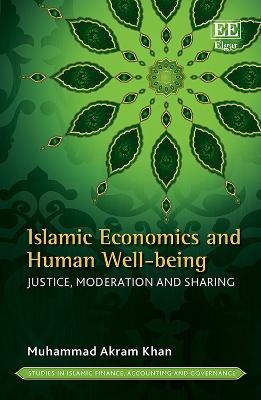Studies in Islamic Finance, Accounting and Governance
1 total work
In this comprehensive book, Akram Khan not only illustrates the empirical evidence found in traditional economics but also explores the divine revelation found in the Qur’an and the traditions of the Prophet Muhammad. Highlighting the five dimensions of Islamic justice, namely equality, accountability, reciprocity, fairness and empowering the weak, the book emphasises moderation in the creation and consumption of wealth and outlines a plan for sharing resources with those in need. It goes a step further from material well-being to demonstrate how enhancing human happiness is the goal for a modern society.
This visionary read will be an excellent resource for academics involved in teaching, researching, and writing on Islamic economics. It will also be of great benefit to policy makers and economic managers in Muslim and Western countries who would like to focus on social and economic justice in their societies.
